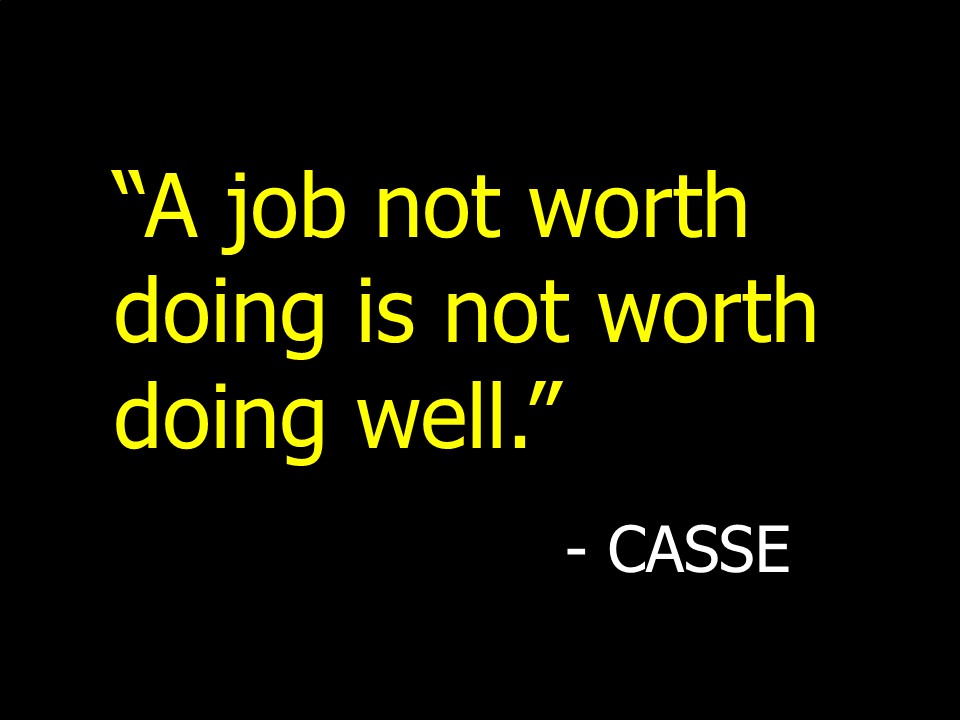Another take on Efficiency
Posted by Martin Ogle on Jul 6, 2016 in All Posts | Comments Off on Another take on Efficiency
Efficiency is not always a good thing. Does this seems shocking? If so, consider the ramifications of an efficient criminal enterprise. Observe that a cancerous growth can be very efficient in commandeering the resources of its host body. Ruminate on the efficient nature of many Ponzi schemes. As the article “Insufficiency of Efficiency” reminds us, “A job not worth doing is not worth doing well.” (http://steadystate.org/wp-content/uploads/CASSE_Brief_Efficient_Allocation.pdf).
Right now, efficiency has a “good rap.” Everyone loves it. However, just as things that have a bad rap can have their good sides, those viewed positively can also have their dark underbellies. This brief essay posits that such is the case with efficiency and that an unquestioning loyalty to efficiency could be hindering our quest for sustainability.
Don’t get me wrong. I’m not against efficiency. I am a proponent of efficient technologies, our family has purchased energy efficient cars and appliances and we hired Boulder County’s Energy Smart program conduct a home energy audit on our house (and followed through with much of the suggested work). However, efficiency can be in service of two very different goals: 1) real human needs within the realities and constraints of our living planet; and 2) growth-for-growth’s-sake. Energy efficiency within the former context could allow us to live sustainably and elegantly, respectful of our relationship to Earth and result in a real reduction in energy and resource consumption. Energy efficiency in the service of constant growth allows us to keep growing, sometimes even faster, in the short term. It delays the inevitable pain and suffering of having lived beyond our means even if it provides for real human needs in the meantime. To the extent that efficiency allows us to live beyond our means without finding an alternative to growth-for-growth’s sake economics, it will contribute to greater pain and suffering in the future because it sets us up for an ever harder fall. For another take on this, visit http://science.time.com/2010/09/30/energy-will-efficiency-lead-to-more-consumption/.
Public consideration and discussion of how efficiency is applied and of the pros and cons of constant growth could reveal and explain the apparent paradox of how, in the face of greater and greater efficiency, we could be headed faster and faster towards environmental limits. Even as societies become more energy efficient, our collective energy use continues to increase. The U.S. economy, for instance, has become much more efficient since the 1970s, but we continue to consume approximately the same amount of energy per capita, and more overall (http://ourfiniteworld.com/2012/03/12/world-energy-consumption-since-1820-in-charts/ ). For more on this, see the article “Why Energy Efficiency May Not Decrease Energy Consumption” (http://thebreakthrough.org/archive/why_energy_efficiency_does_not).
I realize that the paradigm of growth-for-growth’s-sake has burrowed itself deeply into our collective psyche and that most people thus might consider the idea of efficiency in service of growth to be a good thing. For the purposes of this essay, I simply posit that growth-for-growth’s-sake economics is our most significant barrier to sustainability, though, and that efficiency in service of this end-game makes things worse. For more on this, visit the website for the Center for the Advancement of the Steady State Economy (http://steadystate.org/).
Our biggest need today is to efficiently and fairly slow down our human activity on the planet – whether that be consumption of energy and other resources, population growth, the pace of life, information overload or many other things. At any given moment in time, growth in one or all three of these has been and could be needed and good. For the time being, though, our overarching need is to lessen our impact on our living planet and to restore our bodies and minds to a more sane level and rhythm. Can we apply efficiency to this task? It all depends on our real, underlying goals.
******
Other articles:
Efficiency sucks. What we need is good work – https://www.govloop.com/community/blog/efficiency-sucks-what-we-need-is-good-work/
A Plea For Some In-efficiency – Too much efficiency can be a bad thing https://stratecutionstories.wordpress.com/2012/06/19/a-plea-for-some-in-efficiency-too-much-efficiency-can-be-a-bad-thing/
Is ‘More Efficient’ Always Better? http://economix.blogs.nytimes.com/2010/08/20/is-more-efficient-always-better/?_r=0






